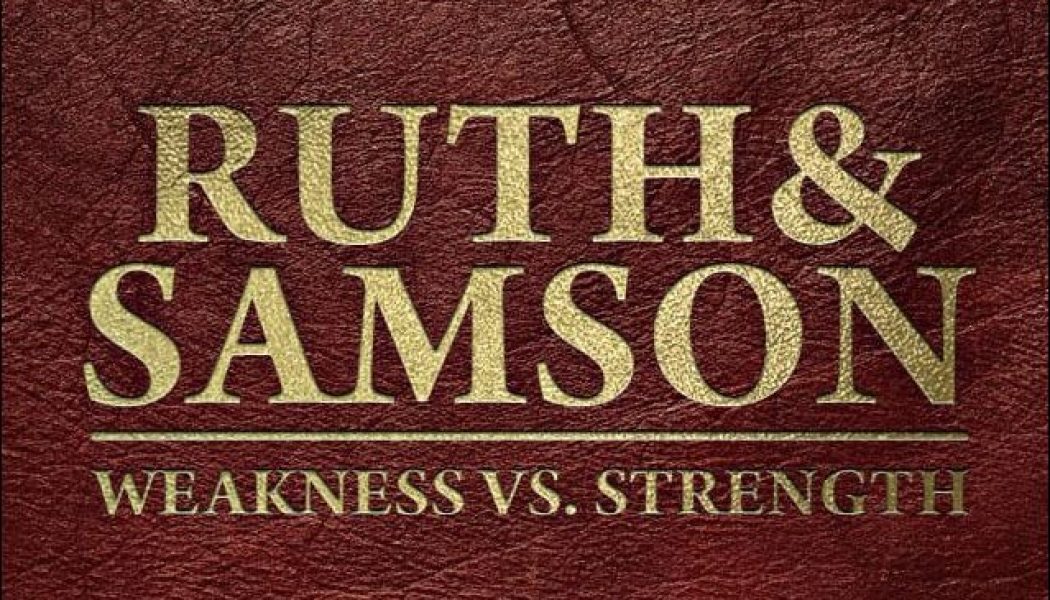I recently reflected on the dark conclusion to the book of Judges—how the book ends with a note of desperation. “In those days Israel had no king; everyone did what was right in his own eyes.” And what was “right in their eyes” was patently horrific. It seemed so appealing at the beginning, to define God how they wanted him to be. But it turned out to be hell on earth.
If the book of Judges were all we had to capture this time in Israel’s history, it would be a dismal piece of history indeed. But there’s another story, a hidden subplot, to what’s going on in Judges. It’s the tiny companion volume known as Ruth.
The book of Ruth is set in the waning days of the rule of the Judges. In case you forgot what those days were like, it wasn’t a great time to be a woman in Israel. Women were bought and sold as property, kidnapped to satisfy the demands of the warriors, and murdered with no apparent concern for justice. Yet the central character of Ruth is a woman. Not only that, she isn’t even an Israelite. And at the start of her story, she’s a widow. By all outside appearances, Ruth is as low and as weak as a person could get.
But while the obviously strong men and rulers are busy driving their nation into the ground, the weak and seemingly helpless Ruth stands out because she trusts God in the face of impossible odds. And because of her faith in the midst of uncertainty, God would use her as his avenue for undoing Israel’s darkness.
You see, all throughout Judges, we’re left wondering if any of these judges will be the savior and deliverer that Israel needed. Some displayed incredible feats of strength and might, but in the end, none of them were up to the task. But the book of Ruth shows us that where the strength of Israel failed, the weakness of God would succeed. God chose Ruth—a woman, an outcast, a nobody—to keep the promise of God alive. Ruth would have a son, Obed, who had a son, Jesse, who had a son, King David. The king that Israel needed would come not through the strength of Samson, but through the weakness of a foreign widow.
But even David wasn’t the ultimate king that Israel needed. From David’s line, generations later, came the king that they truly needed, a king who would have more in common with Ruth than with the judges: Jesus. Like Ruth, he was poor, wandering as an outcast without a home. Like Ruth, he wasn’t the deliverer Israel expected. But because of his weakness, he was the Savior they needed.
Jesus, however, would endure far worse than Ruth ever did. While Ruth endured hardship for a while, she ended her life in a stable and wealthy family. But Jesus would end his life with his closest friends abandoning him. He would not be rich, but would have his only possession on earth—the clothes on his back—stripped from him. And he would not end his days in ease, but would face the most horrific death that humanity has yet dreamed of.
This is where it’s worth another glance back at the book of Judges. For as dark and gruesome as the conclusion to Judges is, it’s not the darkest chapter of Scripture. The darkest moment in the Bible is when the gracious and beautiful Son of God was beaten, mocked and crucified by religious leaders who thought they were doing the work of God.
The cross was so bloody and horrifying that we’re tempted to look away. But it was no more bloody than our sin demanded that it be. The difference between the horrific scene of the cross and the horrific scenes of Judges 17–21 is that Jesus took it on voluntarily. While the men throughout Judges were comfortable subjecting other people (usually women) to bloody punishment, Jesus would accept the punishment on our behalf.
If we see our sin for what it is, if we realize that what Jesus endured was our due, what can we say to this but, “Grace! Grace! God’s grace! Marvelous, infinite, matchless grace, freely bestowed on all who believe! You that are longing to see his face; will you this moment his grace receive?”
Author
J.D. Greear
J.D. Greear, Ph.D., is the President of the Southern Baptist Convention and pastors the Summit Church in Raleigh-Durham, NC. Tagged by Outreach magazine as one of the fastest-growing churches in America, the Summit has grown in the past 8 years from 400 to over 5,000 each weekend. The Summit Church is deeply involved in global church planting, having undertaken the mission to plant 1000 churches in the next 40 years. J.D. has authored Breaking the Islam Code and the upcoming Gospel: Recovering the Power that Made Christianity Revolutionary.
JD Greear
This article was first published at Church Leaders









